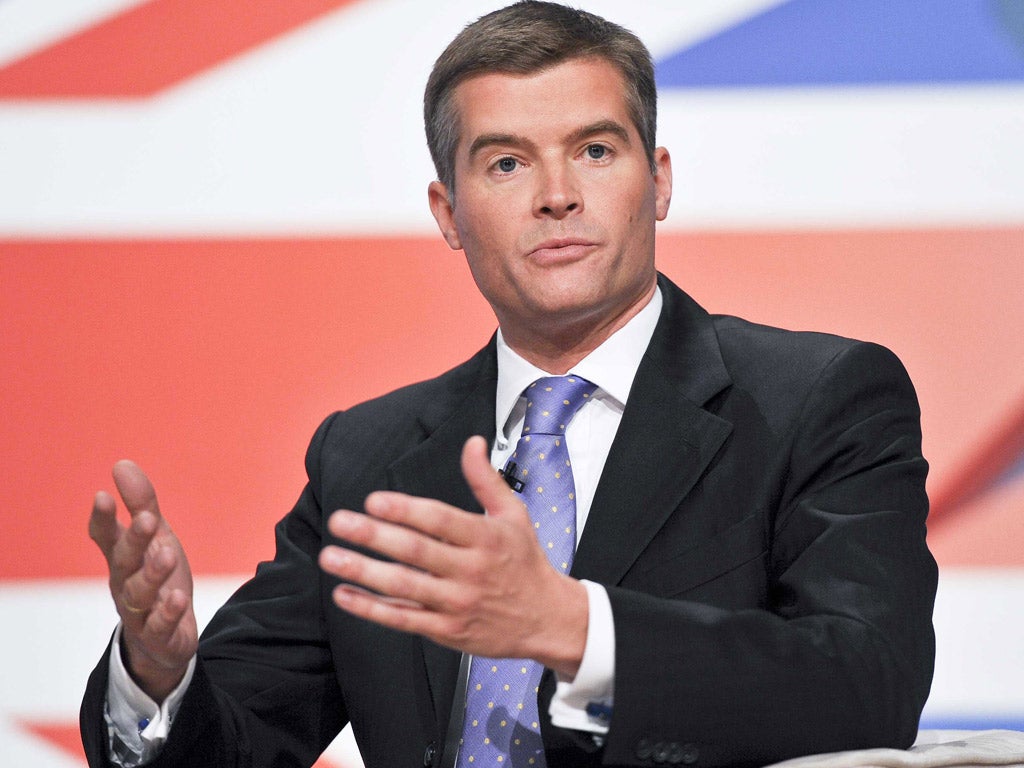Minister dismisses fears of new year tide of Romanians and Bulgarians migrants
The Government has refused repeated demands to publish or commission estimates of the numbers expected to enter Britain

Your support helps us to tell the story
From reproductive rights to climate change to Big Tech, The Independent is on the ground when the story is developing. Whether it's investigating the financials of Elon Musk's pro-Trump PAC or producing our latest documentary, 'The A Word', which shines a light on the American women fighting for reproductive rights, we know how important it is to parse out the facts from the messaging.
At such a critical moment in US history, we need reporters on the ground. Your donation allows us to keep sending journalists to speak to both sides of the story.
The Independent is trusted by Americans across the entire political spectrum. And unlike many other quality news outlets, we choose not to lock Americans out of our reporting and analysis with paywalls. We believe quality journalism should be available to everyone, paid for by those who can afford it.
Your support makes all the difference.Claims that Britain is about to be hit by a tide of Romanian and Bulgarian migrants when border controls are lifted next year were dismissed by the Government.
Mark Harper, the Immigration minister, also rejected calls from Tory right-wingers for frontiers to be shut to workers from the two countries for another five years, warning that such a move would be thrown out by the courts.
Mr Harper’s comments were the first attempt by the Government to forecast the potential impact of the lifting on 1 January of “transitional controls” limiting the right of Romanians and Bulgarians to work in this country.
Ministers fear that the issue, which has been heavily exploited by the UK Independence Party, has the potential to become politically toxic for the Conservatives in the run-up to the European Parliament elections next May.
They are haunted by Labour’s experience in 2004 when borders were opened without restriction to 10 new European Union member states including Poland and Lithuania. Forecasts at the time suggested the influx of workers could amount to just 13,000 a year, a fraction of the eventual figure.
Speaking to journalists, Mr Harper argued there was “a big difference” between the events of nine years ago and the end of controls in six weeks’ time on 28.6 million Romanian and Bulgarian nationals.
He said: “In 2004 we were the only major country to not have transitional controls. All the other big countries did.
“Anybody who wanted to come and work somewhere legally came to the UK, which is why we had such a significant number of people.” The minister added that the new migrants were more likely to head to “economically successful” Germany or to Italy and Spain, which have large established populations from the two countries.
He refused to make a firm forecast of the likely number of new arrivals, explaining that making such predictions was a “fool’s errand”. The minister also dismissed pressure from Tory MPs to reimpose the Romanian and Bulgarian controls until the end of 2018.
Mr Harper said the move “simply isn’t legally possible” without amending the accession treaties that sealed Romania and Bulgaria’s membership of the EU.
“We wouldn’t even need to go to the European courts – the domestic courts would rule it wasn’t compliant with our treaty obligations, because it isn’t. We’ve extended the controls to their legal maximum.”
Mr Harper insisted the Home Office was not complacent about the issue and was working with other Whitehall department to limit migrants’ access to social housing and benefits and to tackle illegal working.
Conservative calls for an extension to the controls on Romanians and Bulgarians have been led by Nigel Mills, the MP for Amber Valley. He has argued the economy and public services would struggle to cope with large numbers of extra workers from eastern Europe.
The Government has refused repeated demands to publish or commission estimates of the numbers expected to enter Britain.
But Migrationwatch, a pressure group arguing for tighter immigration controls, has forecast that 250,000 Romanians and Bulgarians would head to Britain over five years, lured by the prospect of higher wages.
Subscribe to Independent Premium to bookmark this article
Want to bookmark your favourite articles and stories to read or reference later? Start your Independent Premium subscription today.
Join our commenting forum
Join thought-provoking conversations, follow other Independent readers and see their replies
Comments